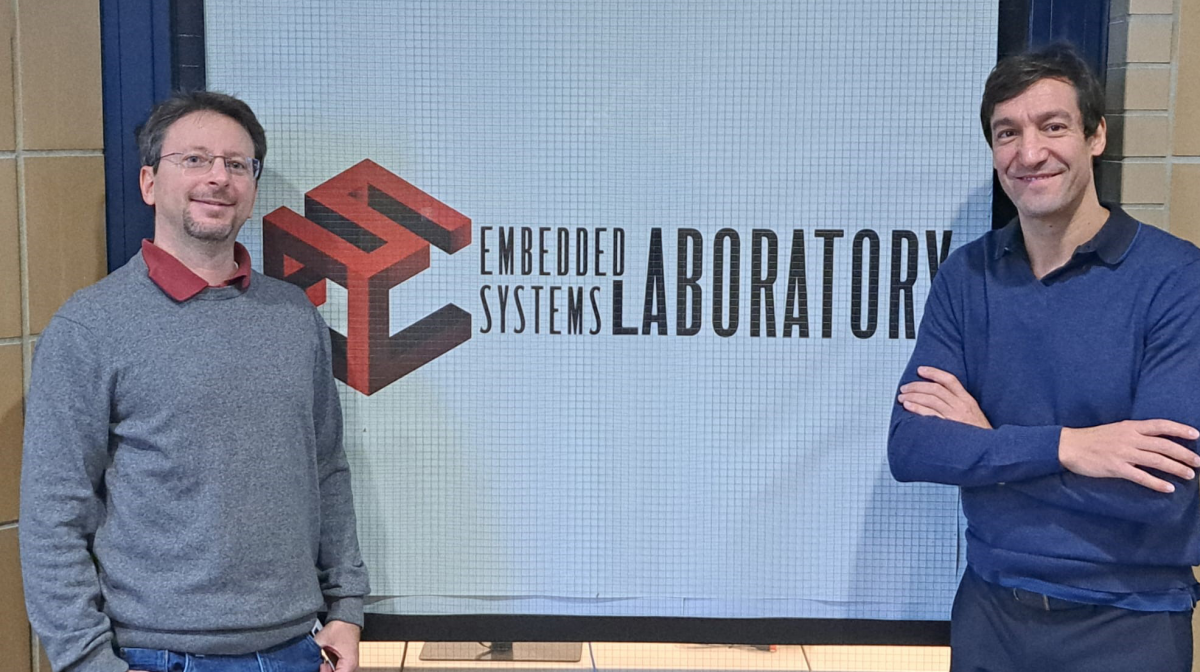Article by

Sony’s Sensing Solution University Collaboration Program is excited to announce its partnership with the École Polytechnique Fédérale de Lausanne (EPFL), Embedded Systems Laboratory (ESL). This collaboration is all about fueling student-driven innovation in IoT and sensing technology, and it brings together Sony’s Spresense platform and EPFL’s tech-savvy students to make it happen.
The partnership kicks off with an IoT design contest for EPFL M.Sc. students, challenging them to build real-world solutions using Sony’s Spresense microcontroller. These projects will focus on health tech and interactive drone control, blending high-tech tools with creativity to solve real challenges. It’s a unique chance for students to explore IoT, gesture recognition, and edge computing with hands-on projects.
The Projects: Health Monitoring and Drone Control with a Twist
Students in the EPFL competition will work on two flagship projects using Spresense:
- Seizure Detection System: This project will turn a smartphone or tablet into a seizure detection hub, communicating with wearable sensors that monitor brain activity and movement data. Spresense will process signals from wearable EEG devices like EPFL’s own Versasens, e-Glass and EpiPhone, allowing the system to send out instant alerts when a seizure is detected. It’s a big step toward real-time, edge-based health monitoring that could be life-changing for users.
- Aerial Gesture Maestro: Think of this as gesture-controlled drone magic. With this project, students will use Spresense and wearable sensors to make a drone respond to specific hand gestures, like swiping left to make it glide sideways or raising a hand to make it soar upward. It’s an ideal setup for art performances, filmmaking, or just creating cool new ways to interact with tech. Spresense will use either Bluetooth or Wi-Fi to communicate commands from gestures to a drone-controlling app, giving users a real-time way to choreograph drone movements.

Seizure Detection System, Aerial Gesture Maestro
These projects will be developed over a semester, with top designs awarded prizes at EPFL. Winning students get more than just bragging rights; they’ll receive support to continue developing their prototypes, along with research assistant positions at EPFL to further refine their ideas.
Guided by Professor David Atienza and Dr. Giovanni Ansaloni
Leading the charge at EPFL are Professor David Atienza and Dr Giovanni Ansaloni, seasoned experts in IoT, edge computing, and embedded systems. Dr. Giovanni Ansaloni is a researcher and lecturer at the Embedded Systems Laboratory of EPFL, where his research focuses on domain-specific architectures and algorithms for edge computing systems. On these topics, Dr. Ansaloni is the co-author of more than 70 papers and has ample experience in industrial projects. Then, as head of EPFL’s Embedded Systems Lab, past Scientific Director of the EcoCloud Sustainable Computing Center, and currently Associate Vice President for Research Centers and Platforms at EPFL, Professor Atienza’s work has pushed forward everything from ultra-low power edge AI to new ways of designing IoT systems. He’s published over 400 papers and holds multiple awards for his contributions to the field. Now, they will bring this expertise to mentoring EPFL students as they take on these ambitious projects.
“For ESL-EPFL, this new collaboration with Sony is really strategic to make sure the research we do in edge AI and smart embedded systems can be applied to the context of the new industrial edge AI platforms that Sony is developing. Spresense is a great example of a multi-parametric platform for many different IoT applications, and collaborating with Sony is the best way to investigate the best way to use it in these different IoT setups. In addition, I am convinced it is really beneficial for EPFL students to learn how to use such new edge AI platforms for their professional future, and it is fantastic that Sony can sponsor the competition, as the prizes give a clear extra motivation to the students to push the limits of Spresense.” says Prof. David Atienza.
A Real-World Learning Experience
For EPFL and Sony, this partnership is about empowering students to get hands-on with technology that makes a difference. From health monitoring to gesture-based drone control, these projects offer the tools, mentorship, and platform for students to push their skills and explore the possibilities of IoT. It’s an inspiring step forward as Sony teams up with universities worldwide to foster innovation, education, and next-gen tech breakthroughs.
